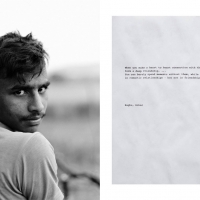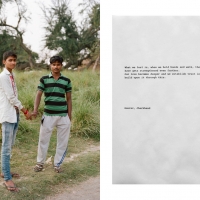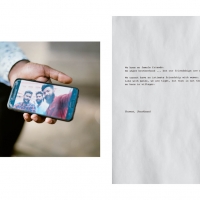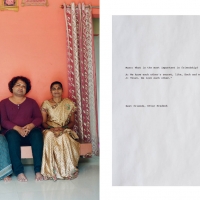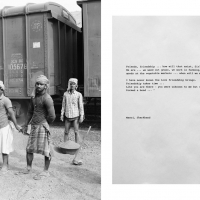The Photo Review Award Winner
Marc Ohrem-Leclef (born 1971, Duesseldorf, Germany; lives Brooklyn, NY) was raised in a German-Belgian household in Cologne, Germany. After civil service as an EMT, he studied communication design at Darmstadt University of Applied Sciences, Germany. Soon after graduating with his BA, in which he produced an artist book with photographs and texts from Jamaica, he relocated to New York and founded a commercial photo studio. Shooting for advertising clients for over fifteen years, news of forced evictions in favela communities in Rio de Janeiro ahead of the 2016 Olympic Games changed his career path. In 2012, he began work on the photography and video series “Olympic Favela” (2012-16), collaborating with residents of Rio’s favelas to create interventional gestures to visualize their resistance against the evictions. It was exhibited at Baxter St Gallery at The Camera Club of New York and Seattle International Film Festival, as well as the Neue Gesellschaft für bildende Kunst, Berlin. It is part of the collection at the Museo de Arte do Rio, Brazil. His monograph Olympic Favela was named “Best of 2014” by American Photo Magazine. He has since focused on making work in response to socio-political histories that veil inequalities. Recently, he has exhibited at Aperture Gallery, New York; Photo Israel, Tel Aviv; and Clark House Initiative and Godrej India Culture Lab, both Mumbai. His work has been reviewed in British Journal of Photography and LensCulture, awarded the 2018 Meitar Award for Excellence in Photography and LensCulture’s 2018 Art Photography Award. Ohrem-Leclef was a MacDowell Colony Fellow in 2018.
Statement from the Artist:
For the ongoing series “Zameen Asmaan Ka Farq”, I pair photographs with quotes from informal interviews in order to explore the intersections of homosocial culture, friendship and love between men in India. I am especially interested in the impacts of patriarchy, ‘colonial masculinities’ and contemporary gender identity politics on the lives of my collaborators. My work documents the many kinds of love existing in India and considers the region’s history of socially accepted fluidities of sexuality, gender and identity. To this day, they provide room for intimacies between men that transcend the socially accepted but remain in unspoken spaces, as well as the struggles of queer identifying individuals. Since 2017, I have worked with collaborators in 13 states across India, making portraits (analog/medium-format) and recording 100+ conversations in 7 languages. I seek out collaborators from a broad range of identities, classes, castes, religions and locations, ranging from scholar to day laborer, in urban centers and remote villages, including tribal communities.
